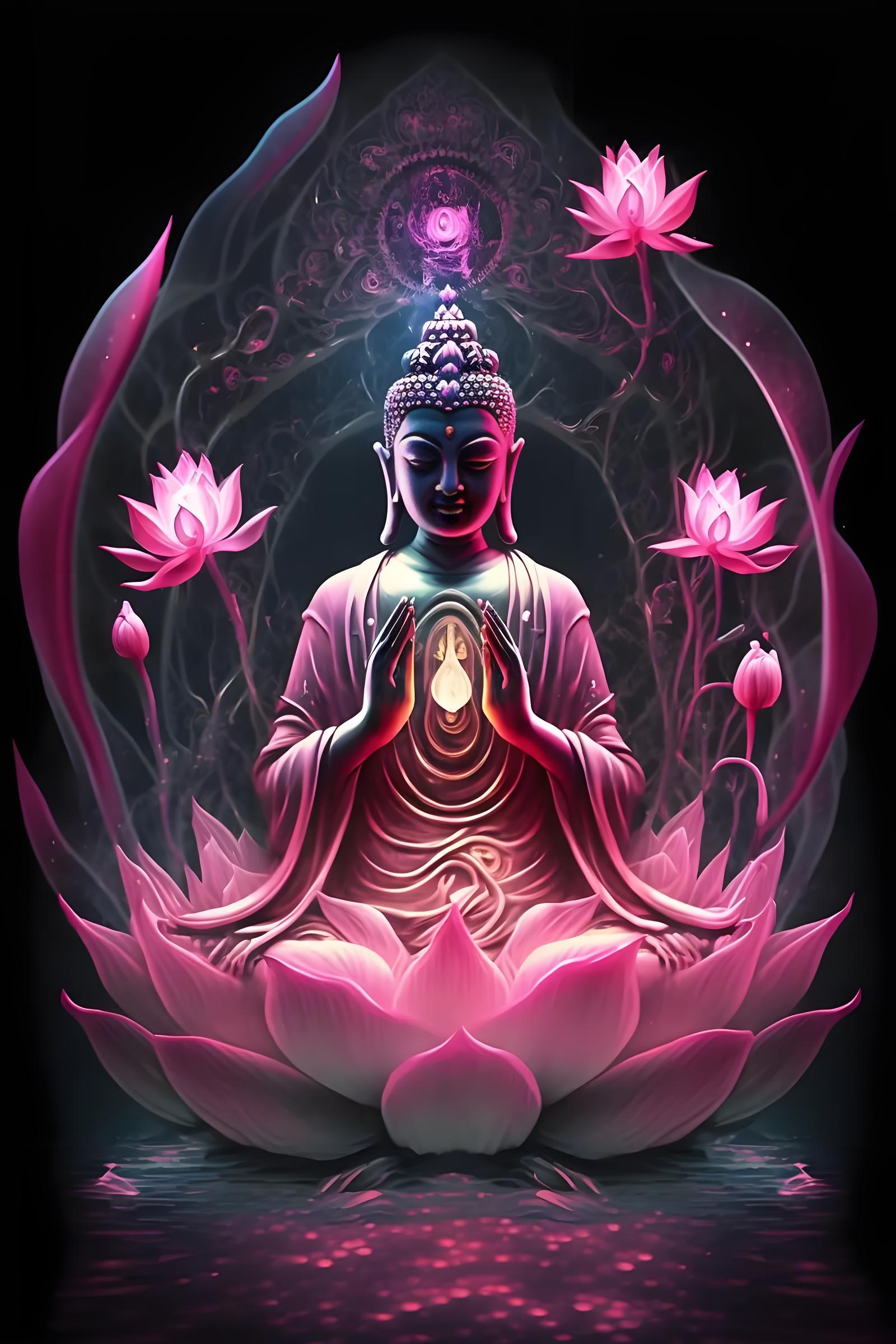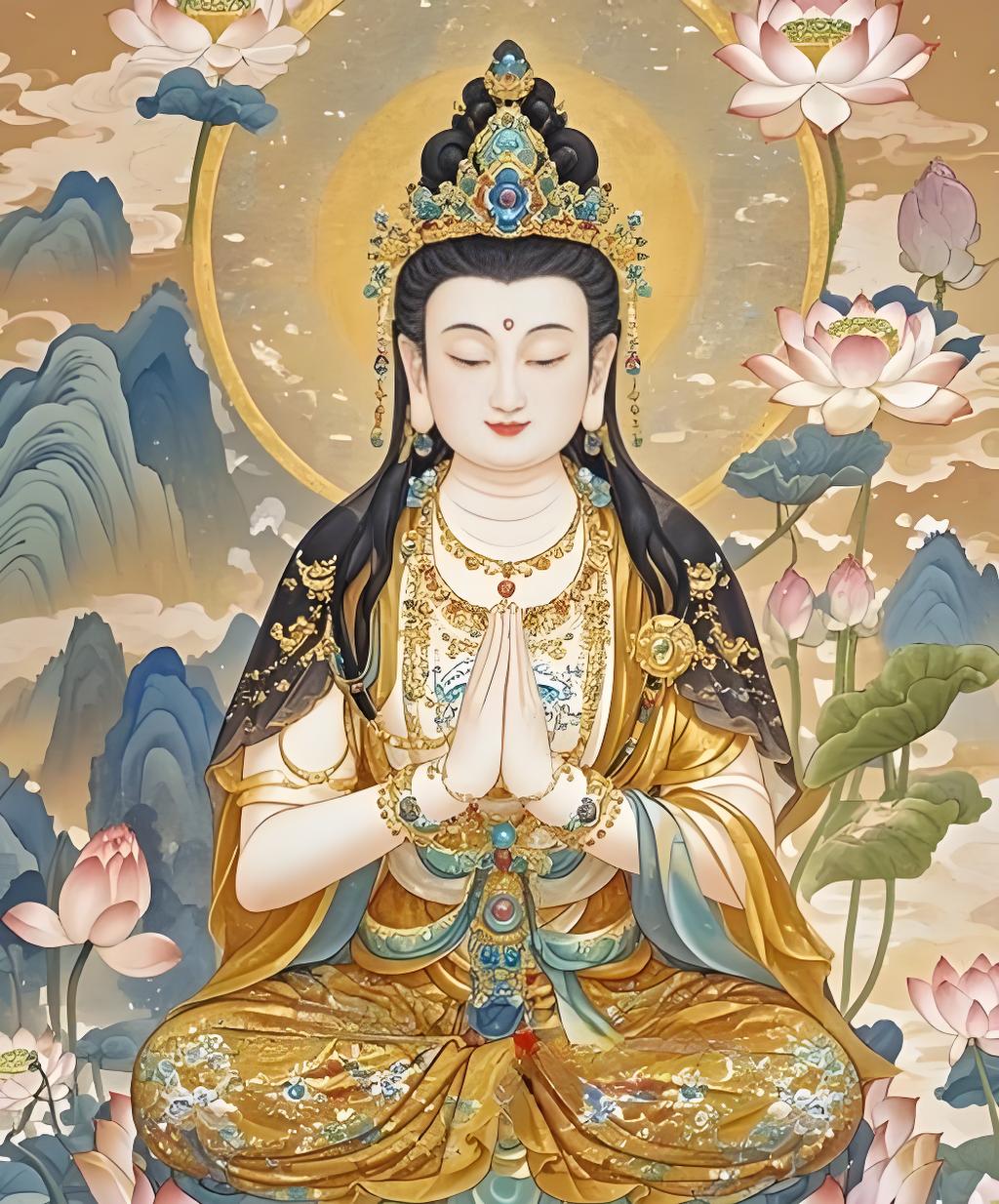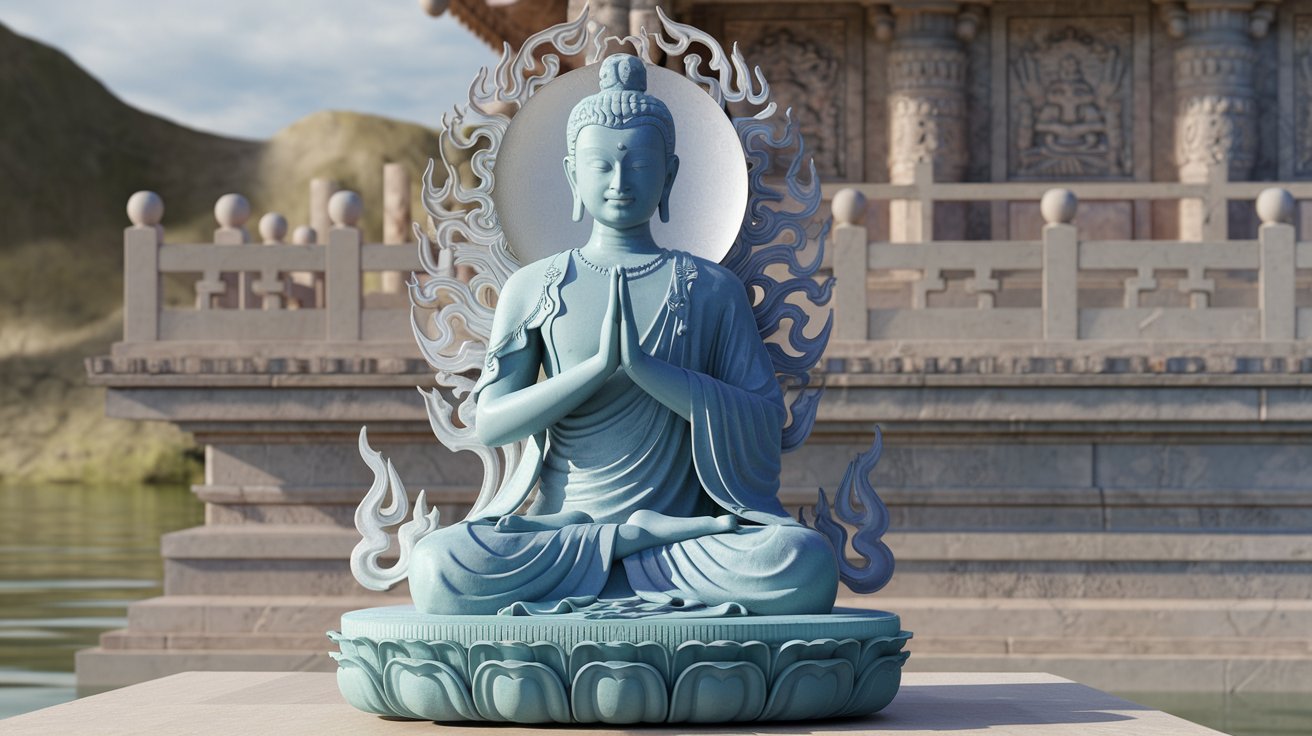Within the vast tapestry of Buddhist practice, the bodhisattva prayer stands out. It represents a profound commitment to both self-cultivation and the compassionate service of others. It’s not simply about seeking personal benefit but rather dedicating oneself to the liberation of all sentient beings. Therefore, a bodhisattva’s path embodies a unique spiritual practice of the highest order. These prayers are an integral aspect, and they illuminate the profound wisdom and compassion found within Mahayana Buddhism. This spiritual exercise serves as an aspiration, therefore, focusing on universal benefit. It also demonstrates a deep commitment to alleviating suffering for all.
Understanding the Bodhisattva Vow
At the heart of the bodhisattva path is the vow. It’s a solemn pledge to postpone one’s own final liberation, so, choosing instead to remain in the cycle of existence until all beings are free from suffering. The bodhisattva path, therefore, is not merely a personal pursuit but is also an active engagement with the world. This dedication requires cultivating wisdom, compassion, and skillful means, or upaya. By this very method, the Bodhisattva aspires to guide others towards enlightenment, helping them free themselves from their cycles of suffering. This dedication, then, stems from profound compassion for all beings. Moreover, it is driven by a desire to bring an end to all suffering, thereby enhancing human experiences.
The Practice of Bodhisattva Prayer
The bodhisattva prayer involves more than just reciting words. For example, it is about cultivating an intention, where a sincere wish arises for the welfare of others. Consequently, these prayers help in the development of genuine empathy. Moreover, they facilitate the growth of loving kindness and compassion within practitioners. Also, by repeatedly reflecting upon these prayers, practitioners embed this altruistic attitude deep within themselves. Moreover, it actively reshapes their thoughts, intentions, and actions, allowing them to become positive forces in the world. As a result, daily practice fosters greater mindfulness, focusing on compassion towards others.
Examples of Bodhisattva Prayers
Many beautiful examples of bodhisattva prayer are found within Buddhist texts. The most famous, of course, include the Bodhisattvacaryāvatāra or A Guide to the Bodhisattva Way of Life, by Shantideva, along with the various forms of the Seven Branch Prayer. Furthermore, these prayers usually include various components. Such components could be the practice of prostration, making offerings, or the practice of confession. Additionally, we could mention rejoicing in the merit of others, the requesting of teachings, or supplication. For example, some of the prayers focus on protection from danger or finding rest. Still others might ask to be healing medicine for the sick or as the light in the darkness.
The Seven Branch Prayer
This particular prayer is very important. It contains seven different aspects which can be part of the bodhisattva prayer tradition. Firstly, prostration, is a demonstration of respect. Secondly, offering, which includes material and mental donations, then confession, with admitting our wrong deeds and errors of thoughts, followed by rejoicing, finding joy in all acts of virtue and finally requesting of teachings for others’ benefit. There is the supplication to great teachers and dedication of all merits toward complete enlightenment. Therefore, this prayer encompasses various important acts of worship, service, and selflessness. In other words, by incorporating each branch into the daily practice of these teachings, they foster a genuine transformation of our daily mindset. It guides each being towards genuine empathy and enlightenment.
Shantideva’s Prayer
Shantideva’s famous prayer often recited within Mahayana tradition beautifully articulates this spirit. This can also be part of one’s own unique bodhisattva prayer. A practitioner recites, “May I be a guard for those who need protection, a guide for those on the path”. Also included is the famous statement, “A boat, a raft, a bridge for those who wish to cross the flood.” These specific examples inspire individuals to actively embody compassion. This commitment, thereby transforms good intentions into proactive engagement. Therefore, this is crucial in the path towards personal as well as universal peace and wellbeing. Further prayers invoke being a lamp in the darkness, a resting place for the weary and medicine for all. This is very descriptive as these aspirational prayers show a true nature of giving. It is not just providing sustenance but ultimately providing guidance. This prayer ultimately includes aspirations towards enlightenment, benefiting all beings everywhere.
Creating a Personal Bodhisattva Prayer
While traditional prayers serve as a valuable foundation, there is nothing hindering an individual in crafting their own personal prayer. In that same vein, setting intentions through personally designed prayers deepens commitment and provides meaningful engagement with core values. Furthermore, one might begin with periods of silent meditation. Afterwards, individuals can ask their heart: “What do I aspire to give, to protect or how can I best contribute?”. Moreover, listening to the response one receives helps one identify the specific intention of their own bodhisattva prayer. Consequently, a personal prayer helps to refine focus on the spiritual goals that matter the most for any particular practitioner. Such unique practice then increases understanding, self awareness and overall mindfulness within all the facets of a person’s daily journey.
Integrating Bodhisattva Prayer into Daily Life
The spirit of bodhisattva prayer is not limited to formal meditation or recitation, rather it also informs how one interacts with all. For instance, it becomes the motivation behind your actions as a method for fostering universal welfare, regardless of who and when you meet them. Even everyday activities like sharing a meal or assisting another person are opportunities to put these prayers into practice, cultivating kindness. Subsequently, this then helps an individual make progress along their spiritual path towards compassion, peace, and happiness for all beings. Also by seeing daily routines in this way, this will create transformation into expressions of the compassionate vow and thereby promote compassion everywhere. By cultivating that constant awareness one finds endless opportunities for kindness and active goodwill throughout the entire journey.
The Benefits of Practicing Bodhisattva Prayer
Engaging in bodhisattva prayer offers transformative benefits. Above all else it fosters deep empathy, moving an individual away from self-centered thinking. Furthermore it helps diminish negative emotions such as anger and ill-will towards others, enhancing harmonious interaction, thereby improving personal relations, social networks, and public life. Regular prayer also helps a person clarify and enhance commitment and intentions to engage in positive action and service within society. Moreover, consistent practice helps refine and deepen personal spiritual direction. Eventually through continual cultivation a person’s sense of wellbeing will be vastly improved, by fostering personal and collective tranquility, inner peace and contentment. It thereby reduces anxiety and depression because their intentions will center around a feeling of universal goodwill.
Conclusion
The practice of bodhisattva prayer provides profound insight and compassionate focus into both self-awareness, social engagements, and all of daily experiences. The practice also develops wisdom and creates strong positive action for both personal and public well-being. Ultimately, bodhisattva prayer guides those on a meaningful path towards positive action and peaceful intentions. It therefore remains an important aspect of buddhist practices. Furthermore this path provides essential spiritual framework towards true understanding, genuine compassion and lasting world harmony for one, all and everything within creation. As a practice therefore, it creates long lasting benefit on this human journey towards complete happiness for all.



